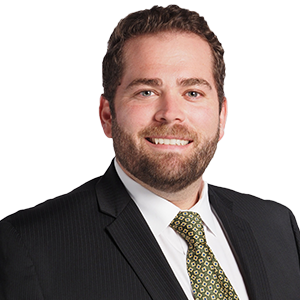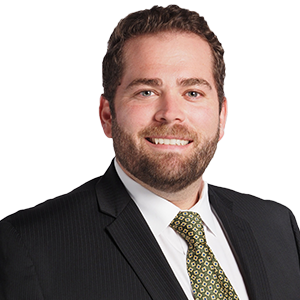


Local Arizona Bankruptcy Lawyer Dominic Majors
Post: 9/22/2020
Bankruptcy can eliminate (discharge) most types of unsecured debt. As a general rule, unsecured debts are accounts that rely on a mere promise to pay. The Majors Law Group can help you obtain a bankruptcy discharge through a simple process while making it affordable.
Secured debts are tied to collateral, like a house or car. Although bankruptcy can also eliminate secured debts, the creditor’s security interest in the collateral survives the bankruptcy. Consequently, if you file for bankruptcy you will still have to pay secured debt if you want to keep the collateral. Otherwise, you can surrender the collateral or the creditor can repossess or foreclose on it.
Most people who file for bankruptcy have one or more of the following categories of debt that they would like to eliminate.
#1 Credit Cards
According to a 2015 survey, the average American household has over $15,000 in credit card debt. When balances get this high, it is difficult for most families to do more than make minimum payments, especially since many credit card companies upped their minimum payment amounts a few years ago. By making the monthly minimum payments and not using the card, the balance will be paid off at approximately the same time as the sun burns out.
Revolving credit lines, like MasterCard and Visa accounts, are unsecured debt. Department store credit cards, like those issued by Walmart or Target and valid only at those locations, are also unsecured debt. Furniture store-issued credit cards from Rooms to Go or Ikea are in more of a gray area between unsecured and secured debts. But in most cases, these accounts are unsecured and the debts are dischargeable.
If you have credit card debt, you should be aware of the fraud presumptions in Section 523 of the Bankruptcy Code, because fraudulent credit card debts are not dischargeable. To prevent discharge, the bankruptcy trustee must prove that the debtor did not intend to repay the debt when the money was borrowed. Fraud is presumed if the debtor:
Obtained a cash advance (or cash advances) of more than $925 within 70 days of filing, or
Incurred more than $650 in luxury items charges from a single creditor within 90 days of filing.
The presumption means the bankruptcy court starts from the position that the debt is fraudulent and you have to prove it is not. A “luxury item” is basically anything other than food or clothes. Sometimes food and clothes are considered luxury items because there is a difference between buying food at the grocery store and eating out at Cracker Barrel.
#2 Medical Bills
The government estimates that almost 27 percent of American households have outstanding medical bills that are financially burdensome. Like credit card bills, medical bills are unsecured. The fraud presumption is typically not a source of worry, because almost no one fraudulently incurs medical expenses.
If the account is more than a month delinquent, the creditor nearly always takes adverse action. At first, the action consists of collections letters and phone calls. Eventually, the lender will file suit to recover the balance. Bankruptcy’s automatic stay applies to all forms of adverse action, and the creditor cannot take any action against the debtor without special permission from the bankruptcy court while the case is pending. Once the debt is discharged, it is illegal for that creditor or any subsequent debt-buyer to pursue payment on the account.
#3 Unpaid School Tuition, Utility Bills
These debts are an excellent example of an important bankruptcy principle, which is that even if the debt is eliminated in bankruptcy, there may still be adverse consequences. For example, most schools will withhold transcripts, prohibit re-enrollment, or take other action if there is outstanding tuition. To avoid these consequences, the account must be paid.
The same principle applies to delinquent utility accounts. After the judge signs the discharge order, the power company can no longer collect the past-due bill, but it may be able to keep the lights off until payment is made.
#4 Payday Loans
The payday loan company wants debtors to believe that these accounts are secured, but they are not. At best, payday loans are secured by a promise that funds will be available in a checking or other account on a given date, but that is not the same thing as tangible collateral for a loan.
Most courts consider ACH and other automatic withdrawals to violate the automatic stay, unless they were initiated at the debtor’s request. So, the payday lender is not supposed to pull money out of an account to satisfy a debt or a debt payment once you have filed for bankruptcy. Nevertheless, it is often a good practice to close the underlying account as a precaution. Always speak with your bankruptcy attorney before undertaking such a move.
#5 Student Loans and #6 Income Taxes
Student loans and unpaid income taxes are both dischargeable debts under certain conditions. Student loans are typically dischargeable if the debtor has an unusual hardship, like a physical disability or other uncontrollable condition. This undue hardship standard can be tough to meet. You may need to prove you cannot maintain even a minimal standard of living and repay the loans.
Income taxes are dischargeable in a Chapter 7 if the debtor filed the return on time, the debt is at least three years old, and it has not been “assessed” in the last 240 days, which basically means that the IRS has not sent the taxpayer an assessment letter in the last nine months.
If you would like more information, please go to www.majorslawgroup.com/contact or call (602)892-1111 for a FREE Consultation.
Affordable Fees and Payment Plans Available.*
Call Attorney Dom Majors for a FREE Consultation.
Schedule a FREE Consultation
"*" indicates required fields




